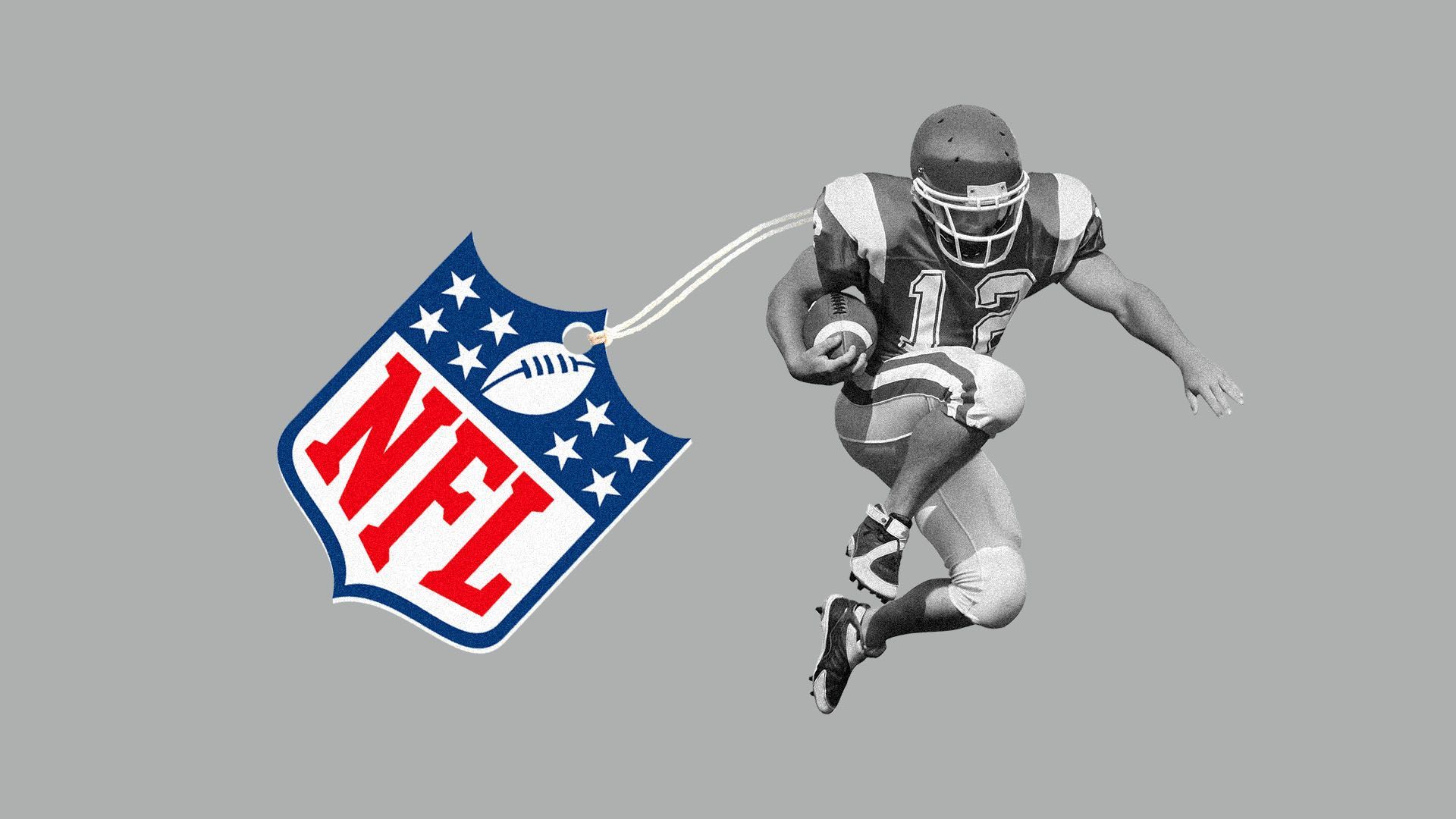The plight of the NFL running back
Add Axios as your preferred source to
see more of our stories on Google.

Illustration: Sarah Grillo/Axios
There's no two ways about it: It's not a good time to be an National Football League running back.
Driving the news: The franchise tag deadline passed on Monday, and all three running backs who were tagged — Saquon Barkley (New York Giants), Josh Jacobs (Las Vegas Raiders) and Tony Pollard (Dallas Cowboys) — failed to agree to long-term contracts with their teams.
- If they sign the tag, as Pollard already has, they'll play on a one-year, $10.1 million deal that pales in comparison to their elite counterparts at other positions.
- But they could also sit out the season in hopes of securing a better deal and protesting the NFL's evolving economics that have left them behind. Barkley might be ready to do just that.
What they're saying: "My leverage is I could say, 'F--k you' to the Giants," Barkley said in a podcast recorded before the deadline passed. "And be like, 'You want me to show you how valuable I am to the team? I won't show up. I won't play a down.' That's a play I could use."
State of play: That $10.1 million tag — calculated by averaging the top five salaries at the position over the previous five years — is lower than it was in 2015 ($10.9M) even as other positions' tags, and the salary cap, have exploded in that time.
- Christian McCaffrey's contract has the highest average annual value among running backs ($16M), but the 86th-highest among all players.
- Bijan Robinson — a rookie — will make the most money this season ($13.72M) among all running backs, with McCaffrey's $12 million a fairly distant second.
The backdrop: Those numbers, while alarming, are also nothing new. It's a trend that began when the rookie wage scale came about in the 2011 collective bargaining agreement, delaying the timeline for when players could negotiate their first big deal.
- For most players, that's not so bad, given there's a steep learning curve upon entering the league and by the time you've reached your prime you can strike gold.
- But running backs' most productive years are often their first few, meaning many have begun declining by the time their rookie deal is up.
The last word: "Guys like Saquon Barkley aren't getting squeezed because teams can grab any bozo out of the draft and turn him into Saquon Barkley, but because teams can find two-thirds of Barkley's production for half of his asking price," writes Defector's Tom Ley.
- That strategy, while cold, seems to be working.
- No Super Bowl–winning team since 2013 has paid its leading rusher more than $2.5 million, per The Ringer.
